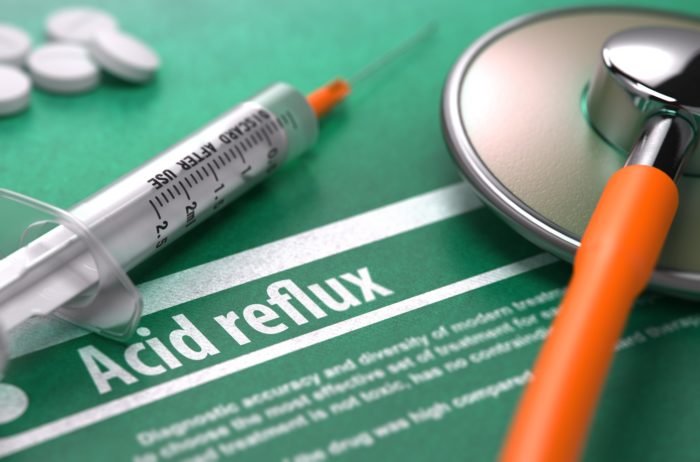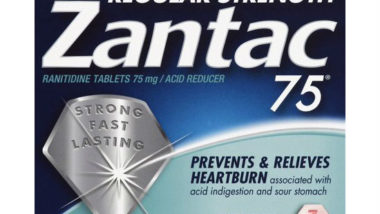Top Class Actions’s website and social media posts use affiliate links. If you make a purchase using such links, we may receive a commission, but it will not result in any additional charges to you. Please review our Affiliate Link Disclosure for more information.
Nexium and kidney disease may be linked, according to results from recent acid reflux studies which examined the risk of the PPI drug.
Nexium is a medication known as a proton pump inhibitor (PPI). Other PPI drugs include Prilosec, Prevacid, Protonix, Zegerid, and their generic equivalents. These medications aim to treat acid reflux by controlling the production of stomach acid.
Unfortunately, proton pump inhibitors may be a cause of dangerous conditions such as kidney disease. Several studies have linked the PPI medications to kidney issues, like kidney stones and disease. However, the drug manufacturers reportedly failed to warn consumers of the risks.
Link Between Nexium and Kidney Disease
In February 2019, researchers from the University of California San Diego published a study about the possible side effects of PPI drugs – including the link between Nexium and kidney disease.
The researchers reportedly found that patients treated with PPIs had a “significant” increase in risk for developing kidney problems such as kidney stones, acute kidney injury, and chronic kidney disease. Overuse of PPIs only enhance the risk.
Kidney stones, also known scientifically as nephrolithiasis, occur when stones made of minerals such as calcium form within the kidney. Someone with kidney stones may be able to “pass” the stones with only pain, but these stones can become more serious if they obstruct the ureter – the tube connecting the kidney to the bladder. In these situations, treatment other than pain management may be required.
According to the PPI study, a significantly increased risk of kidney stones was seen in patients taking omeprazole, esomeprazole, pantoprazole, and lansoprazole.
The study also found that acute kidney injury was a possibility on certain PPI medications. Acute kidney injury occurs when the kidneys suddenly become damaged or start to fail over the course of only a few hours or days. Although treating the cause of acute kidney injury can help the kidneys recover, the condition can be life threatening.
Researchers in the PPI study reportedly found that patients were at a significantly increased risk of acute kidney injury if they took omeprazole, esomeprazole, pantoprazole, or lansoprazole.
Another serious kidney condition associated with PPI drugs is reportedly chronic kidney disease. Unlike acute kidney injury, chronic kidney disease is associated with the decrease of kidney function over a longer period of time. If caught early, the progression of chronic kidney disease can be slowed or halted, although there is no cure.
According to the researchers, an increased risk of chronic kidney disease was seen in patients who had taken omeprazole, esomeprazole, and lansoprazole.
Unfortunately, chronic kidney disease can escalate to end stage renal disease. This occurs when the kidneys completely shut down. If a patient with end stage renal disease doesn’t get dialysis or receive a kidney transplant, they may be at risk for death. Researchers reportedly found that end stage renal disease was a possibility in patients who had taken omeprazole, esomeprazole, and lansoprazole.
“In our study we observed various levels of increased risk of renal and electrolyte ADRs in FAERS reports of individual PPI drugs with respect to H2RA reports,” the researchers concluded, referencing another acid reflux medication class – H2RAs or H2 blockers. “Although H2RAs have not been shown to be as effective as PPIs, they might be considered as alternatives for patients who are at high risk for developing renal and electrolytes imbalances.”
Consumers who have experienced the link between Nexium and kidney disease may have been faced with significant expenses including medical costs, loss of income, and other damages. These patients may be able to hold PPI manufacturers accountable if they feel that they were not sufficiently warned about the risks associated with the drugs. AstraZeneca previously agreed to a Nexium settlement in 2012, though compensation may still be available by taking separate legal action.
If you or someone you know took PPI meds and suffered from Nexium stomach cancer or were hospitalized for Nexium kidney problems, you may qualify to file a Nexium lawsuit to pursue compensation for medical bills, pain and suffering, and more. See if you qualify for a Nexium lawsuit settlement by filling out the short form on this page. It’s absolutely free to participate, so act now!
ATTORNEY ADVERTISING
Top Class Actions is a Proud Member of the American Bar Association
LEGAL INFORMATION IS NOT LEGAL ADVICE
Top Class Actions Legal Statement
©2008 – 2024 Top Class Actions® LLC
Various Trademarks held by their respective owners
This website is not intended for viewing or usage by European Union citizens.
Get Help – It’s Free
Join a Free Prilosec, Nexium Lawsuit Investigation
If you qualify, an attorney will contact you to discuss the details of your potential case at no charge to you.
PLEASE NOTE: If you want to participate in this investigation, it is imperative that you reply to the law firm if they call or email you. Failing to do so may result in you not getting signed up as a client or getting you dropped as a client.
E-mail any problems with this form to:
Questions@TopClassActions.com.
Oops! We could not locate your form.













